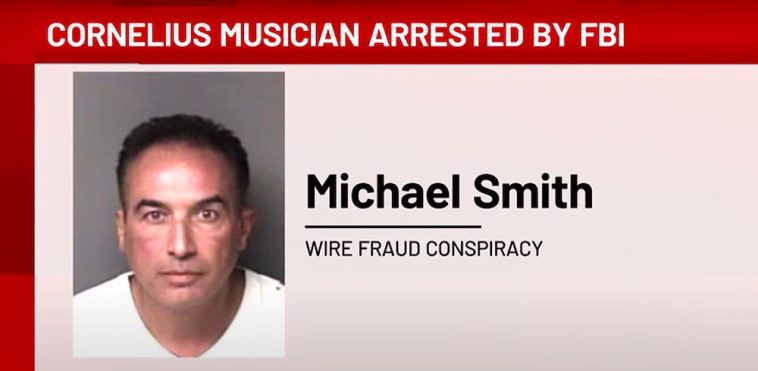In a recent case from North Carolina, a man faces allegations of fraud stemming from his creative use of artificial intelligence (AI) to create a vast array of songs. These songs were subsequently streamed billions of times through ‘bot’ accounts, allegedly leading to the accumulation of over $10 million in royalty fees. This audacious induction of AI into the music industry has led to an unprecedented form of unlawful revenue generation.
A man named Michael Smith, aged 52, and hailing from Cornelius, North Carolina, has been indicted in this unique case. Starting in 2017, he reportedly constructed thousands of accounts on various music streaming platforms such as Spotify and Apple Music. According to the accusations, these accounts were used to continuously stream the songs he owns on these platforms.
Prosecutor’s reports suggest that Smith employed particular software to unrelentingly stream his songs. The calculation behind this strategy predicted an approximate daily stream count of 661,440. With these numbers, Smith was estimated to potentially reap an annual royalty sum of roughly $1.2 million.
Court evidence indicates that Smith employed a smart strategy to make his activities less conspicuous. He dispersed his automated streams across an extensive range of songs. This ensured that he wouldn’t stream any one song excessively, an action that might have brought him under the scrutiny of the streaming platform companies.
However, Smith reportedly faced a stumbling block; his scheme would be safer if he had additional songs amongst which to distribute his streams. This realization led him to seek further assistance. Court documents reveal that he sought the help of two co-conspirators via email, expressing a need for a vast influx of songs to bypass the anti-fraud measures effective on the platforms.
This pressing need to augment the number of songs led Smith to the use of artificial intelligence. Prosecutor’s files indicate that in or around 2018, Smith entered a partnership with an AI music company’s CEO and a music promoter. The objective: develop hundreds of thousands of original tracks using AI, capable of being uploaded onto various streaming platforms.
Court documents further shed light on another one of Smith’s creative strategies. He allegedly produced randomized names for both the songs and the artists of his AI-generated music. This was done with the aim of rendering these phony productions indistinguishable from legitimate ones upon being uploaded to the platforms.
The next phase in Smith’s reportedly cunning plan involved leveraging bot accounts to generate a massive number of streams. These bot accounts, allegedly created by the accused himself, were programmed to stream his AI-created songs incessantly, resulting in billions of streams. This combative utilization of AI and autonomously running software enabled Smith to generate more than $10 million in royalty earnings, according to the allegations.
The Southern District of New York’s U.S. Attorney’s Office accuses Smith of multiple deceits. He purportedly used fabricated names to create his vast number of accounts, thereby manipulating the streaming platforms. Despite agreeing to comply with platforms’ terms and conditions under his false identities, Smith had been resorting to automated software to take control over these accounts and drive the music streaming, as per the prosecutors.
The indictment levied against Smith includes charges of conspiracy to commit wire fraud, wire fraud, and conspiracy to launder money. These are weighty allegations, each one carrying the potential maximum sentence of 20 years of imprisonment.
Smith’s alleged incorporation of AI in music production, followed by swift mass streaming through bot accounts on multiple platforms, initiates a new discussion on copyright laws and digital content monetization globally. This case serves as a reminder for realigning industry measures to prevent similar potential loopholes that could be exploited through fraudulent activities in the future.
The implications of this case are far-reaching, extending beyond the borders of the U.S. It is a telling incident that prompts a profound reassessment of how corporations and legal entities apprehend and address fraud, especially given the rapid technologically-driven transformations within the music industry.
This unprecedented case serves as a reality check for music and digital content industries, bringing to light the underlying risks and vulnerabilities attached to the rapidly digitizing world. Despite the limpid formulation of current anti-fraud measures, loopholes have been exploited. This calls for an urgent re-evaluation and reinforcement of digital security across content creation and consumption processes.
The outcome of the case against Smith remains to be seen, but it undoubtedly prods the music streaming platforms, and the broader digital content industry into sharpening their arsenal against fraud. In light of such events, adapting to swiftly emerging technologies in music production and propagation becomes quintessential for these platforms.


